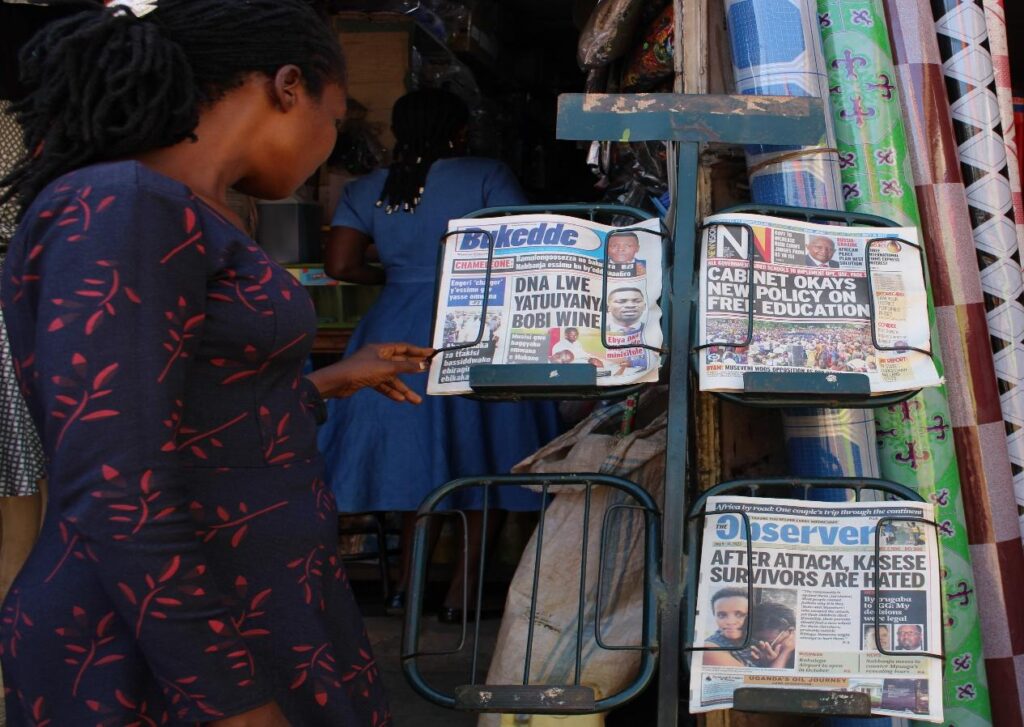Hadijah Nabulya
The media ecosystem thrives in Kampala, Uganda, with a myriad of channels, both online and offline, that try to inform, educate, entertain, and campaign for democracy. The media plays an important part in the lives of ordinary Ugandans, with over 200 radio stations, 30 TV channels, and a handful of newspapers. Appreciation for their work, on the other hand, remains a complex and multidimensional subject.
Dr. Sam Kazibwe, a well-known media expert and political analyst, emphasises the duality surrounding the public’s opinion of the media. While the ruling elite, including CEOs and politicians, frequently professes gratitude, they also manage and abuse the media to further their own interests. Dr. Kazibwe bemoans the fact that media proprietors have little control over their material, which can be affected by strong persons. This control undermines the press’s credibility, ultimately lowering the level of public appreciation that should exist.
“Most of the appreciation is coming in from the chief executive officers, politicians, and other members of the ruling class, and this is the same class that abuses the media. They use it to spread propaganda and influence content, and those who own the media house have limited control,” Kazibwe says.

Unlike Kazibwe, senior journalist Dick Nvule feels that the public values the role of the media. He cites the large number of people who rely on the media for information and advice, and who even actively participate in media activities. A devoted fan club exists at Radio Simba, a popular station, where fans freely give information and connect with the media outlet. Mr. Nvule agrees that the spread of fake news, particularly on online platforms, raises concerns about the media. Nonetheless, he claims that the public continuously seeks confirmation from traditional media, confirming their faith in its reliability.
“Many times, we have heard people complaining about media because of what they consume on online platforms, but what confirms their appreciation is that they still come back to traditional media to confirm”. He emphasised.
Nvule’s attitude is echoed by senior journalist Solomon Lubambula, who emphasises that people rely on the media to make educated decisions and choices. Even during national events and disasters, the media is a credible source of news. The public’s continuing reliance on media channels demonstrates their gratitude for the information and services offered.
The role of the media as an advocate for democracy and good governance cannot be overstated. The media serves as the “fourth estate,” guaranteeing accountability for the three branches of government: the judiciary, executive, and legislative, by reporting on systems and processes and exposing corruption. However, depending on the attitude they adopt, this critical obligation frequently leads to the media being labelled as pro-government or opposition-aligned.
The Executive Director of the Human Rights Network for Journalists, Robert Ssempala, recognises that the media faces several problems, including attempts to silence them. While society should support the media during these trying times, it frequently accuses it of being overzealous. When media coverage contradicts personal convictions, this leads to charges of bias, sensationalism, and a profit-driven agenda.

Robert Ssempala, the Executive Director of the Human Rights Network for Journalists, acknowledges that the media faces numerous challenges, including attempts to silence them. While society should support the media during these difficult times, it often blames the media for being excessive. These criticisms arise when media coverage contradicts personal beliefs, leading to accusations of bias, sensationalism, and a profit-driven agenda.
In a vox pop conducted in Kawempe Division, two individuals revealed their scepticism towards certain forms of media due to their unreliability and perceived connections with oppressive powers. Nonetheless, they acknowledged the positive impact of some media platforms that amplify marginalised voices and facilitate change within the system.
Undeniably, the role of the media in developing countries like Uganda cannot be understated. However, it is an ongoing challenge for media outlets to maintain credibility in the face of external pressures. The government’s influence on media operations makes it even more challenging to strike a delicate balance between pleasing the ruling class and serving the public interest.
As the media continues to navigate these complexities, their pursuit of credibility and relevance remains paramount. By upholding journalistic integrity, embracing objectivity, and delivering accurate news, the media can foster greater appreciation in society. Similarly, the public must remain discerning consumers of media, seeking reliable sources and engaging in constructive dialogue, as they play a crucial role in shaping the media landscape they desire.


